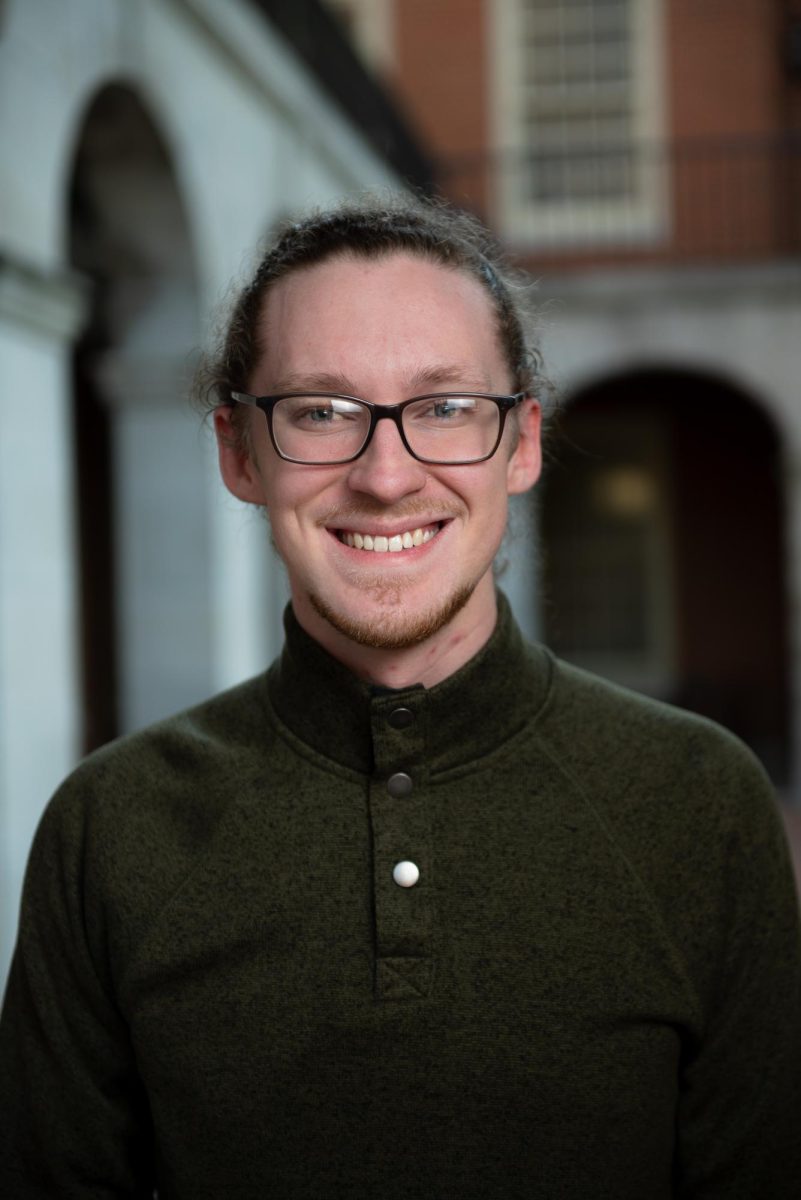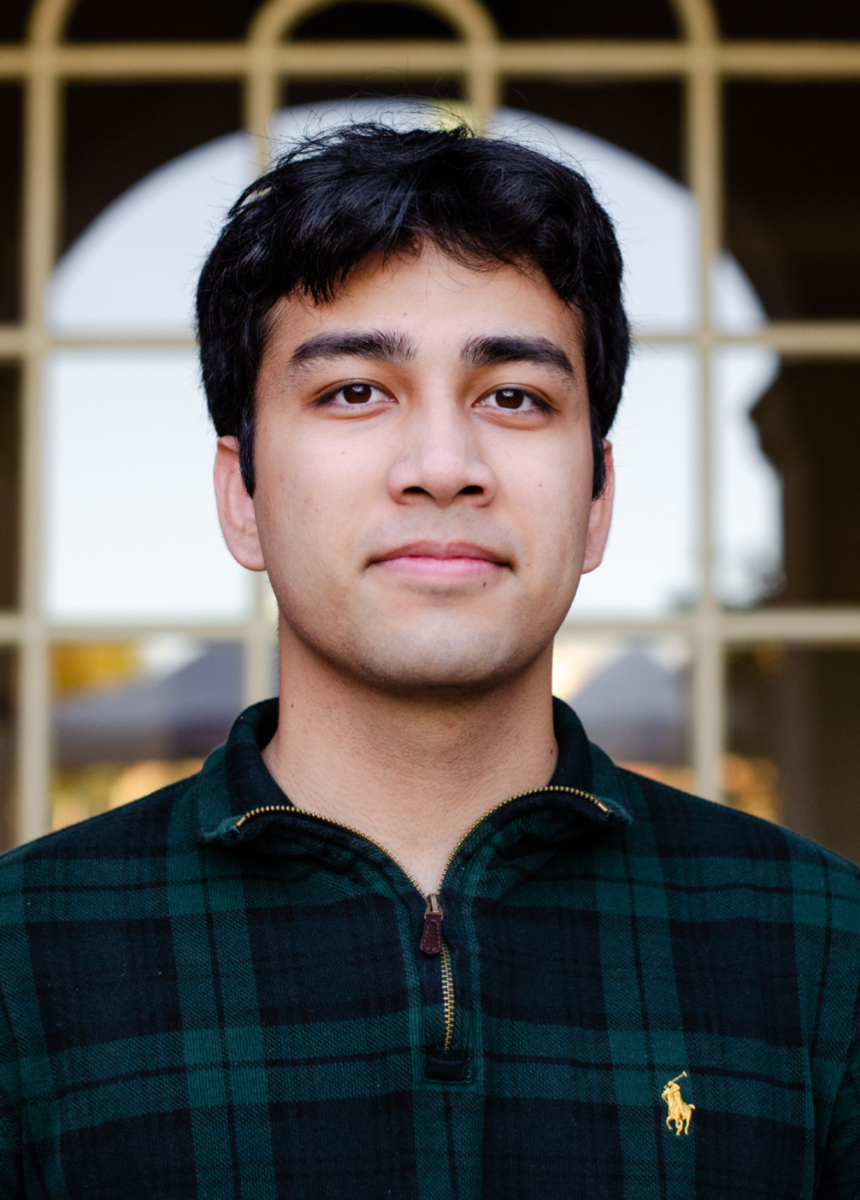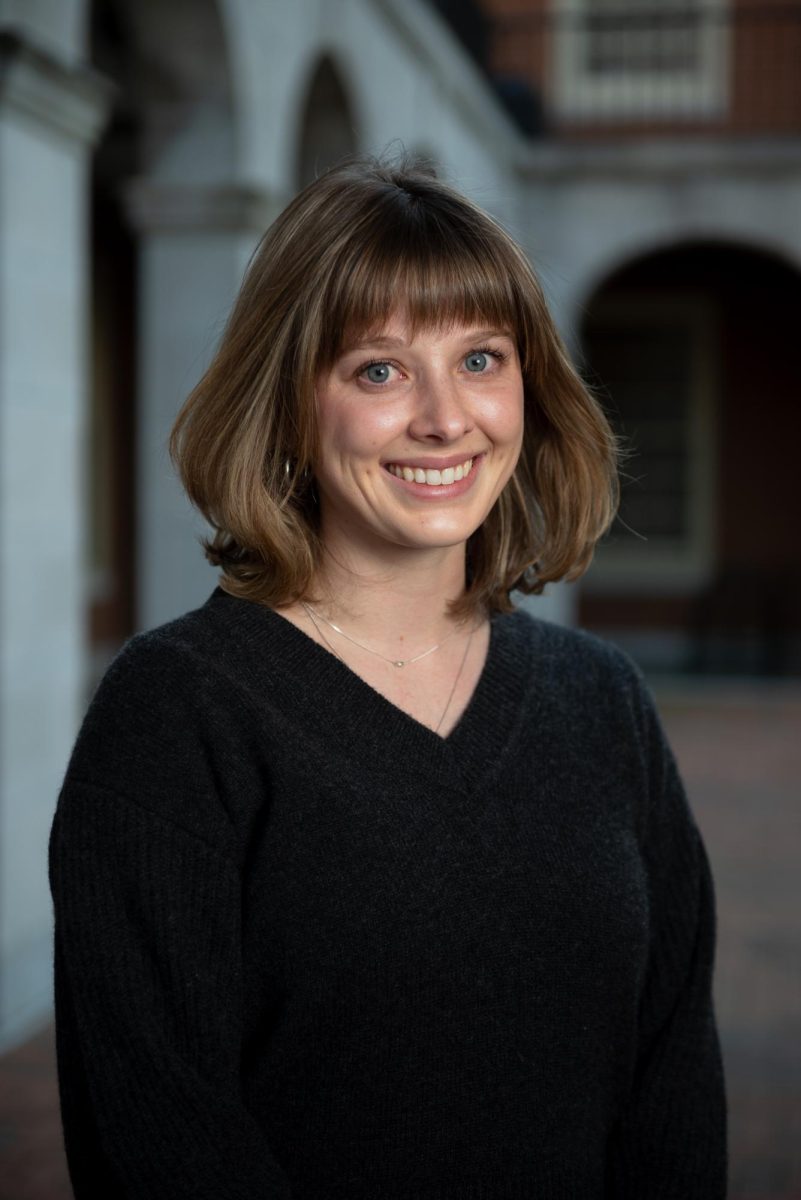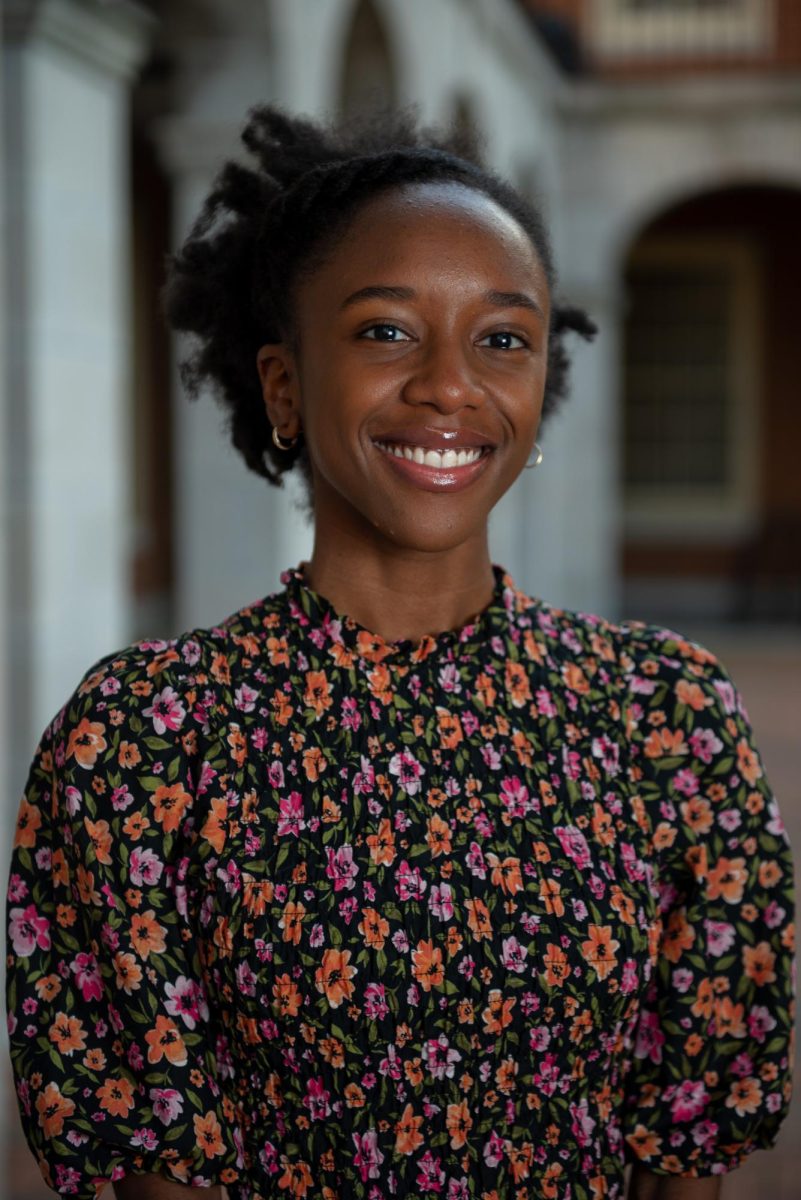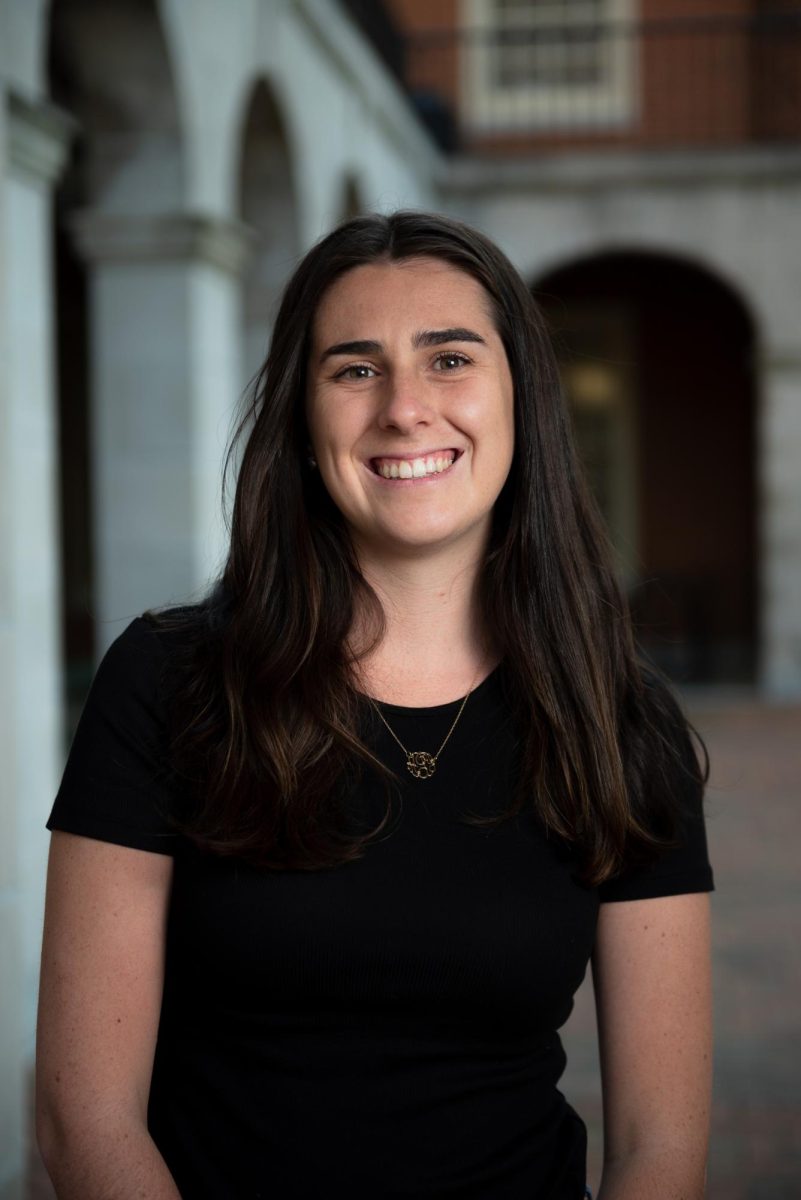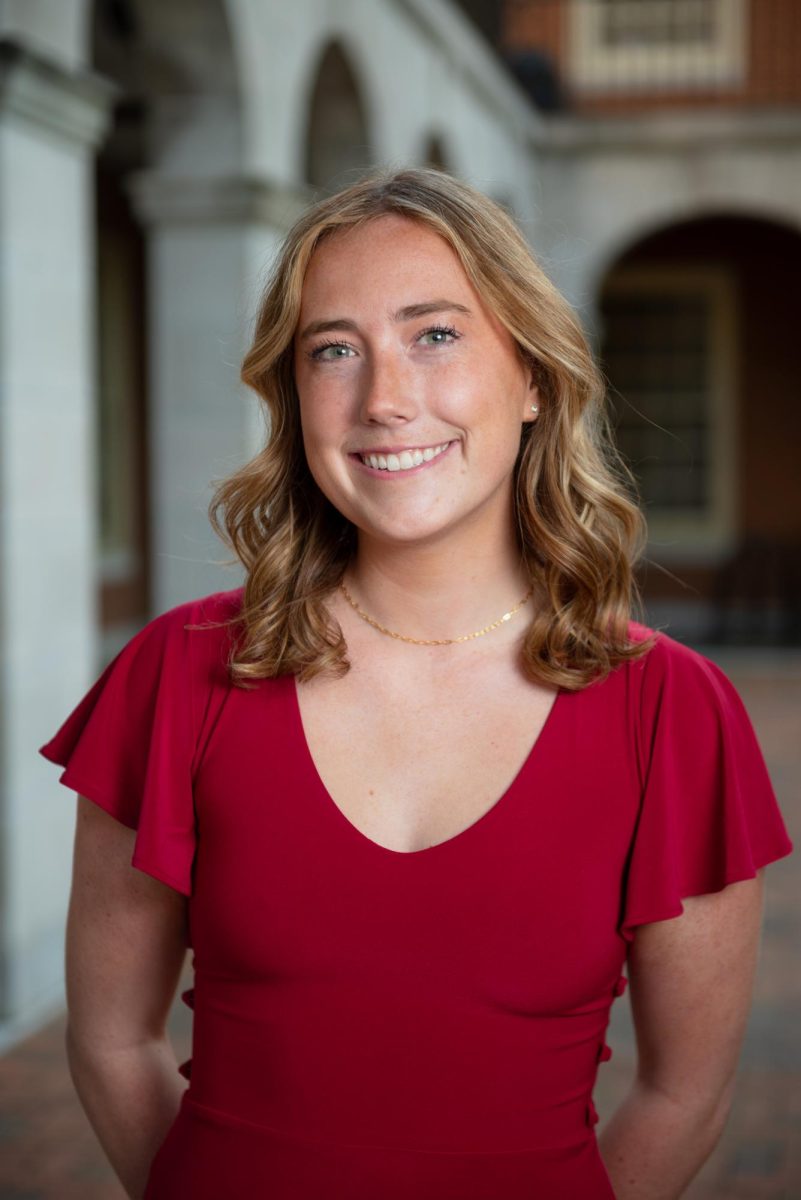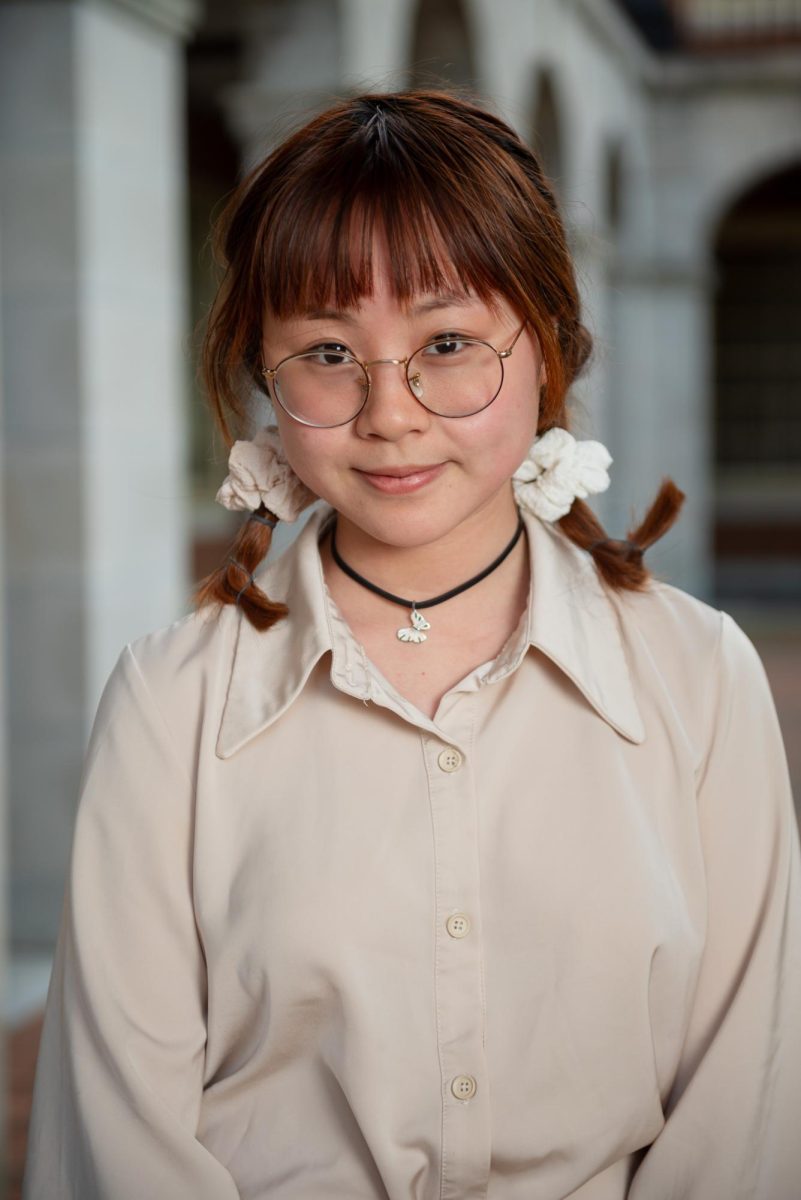Jesse Andrews, a 21-year-old from Kernersville, N.C., pursued a Japanese language & culture degree because of Kirby, the round, pink Nintendo hero from Planet Popstar. Now, he’s writing his honors thesis on how the character challenges traditional gender norms in kawaii.
“I don’t even know if I could have told you that was a Japanese game,” Andrews said.
He received “Kirby: Squeak Squad” as a Christmas present from his mom, and from there, his interest in Japanese entertainment exploded. Stacks of manga — traditional comics characterized by colorful graphics and emotive expressions — cluttered his room. While his buddies chatted about “Friends” and “The Office,” he watched anime like “Berserk” and “Maid-Sama!” instead.
It isn’t just Japanese art that appeals to Andrews. The language buff saw the language’s two alphabets (it uses Chinese characters) as a challenge. He began studying the basics in 2020, the summer before his freshman year. During his semester abroad at Kansai Gaidai University in Osaka two years ago, Andrews learned regional words like ossu (yo!) and meccha (very) to communicate with his fellow students and locals, like the owner of his favorite burger joint.
“It’s an ongoing process of learning — it’s never over,” Andrews said. “At the end of the day, we’re all expressing the same ideas, even if the exact structures of the languages are different.”
After graduation, Andrews will teach in Japan as part of the Japanese Exchange and Teaching Program (JET), an initiative sponsored by the Japanese government to facilitate a cultural exchange between their country and the rest of the world. Andrews describes it as an opportunity for Americans and Japanese to learn from each other’s different values and ways of life.
Although Americans stereotypically have a “live to work” attitude, Japan is even more infamous. According to Andrews, the term karoshi means “death from overwork,” which aptly describes the 80-hour work week. This custom is a problem for Japan, which suffers from declining birth rates and thus employed a record 2 million foreign workers last year according to the Japanese Times.
“Another part of the JET Program is seeing what it’s like to work in Japan,” he said. “Is this something that I can manage? Is it something that I could see myself doing in the future?”
As a collectivist culture, East Asia values family over individuality and views emotions as intrinsically connected to one’s surroundings. It is common for elderly people to live with their children, and a frowning person in a room full of happy people garners attention. These are lessons Andrews incorporates into his life.
When Andrews was president of the Japanese Studies Club during his sophomore year, for example, he noticed a freshman sitting alone at their first meeting. Andrews saw that, while the student appeared to be going through the motions of an icebreaker activity, they seemed more anxious than the members around them.
“Before, I might have looked at this and said, ‘Okay, they’re doing the activity, it’s good,’” said Andrews. “I think it’s more than that. I want to see people enjoying what they’re doing, coming back next time, and then taking my role as a leader when I leave.”
After approaching the freshman — an international student — Andrews learned that they were nervous about finding a community outside of Greek life.
“I told them, ‘I’m not in Greek life either. I managed to do it because I joined this community where we all have shared interests,’” he said. “They ended up coming back every week after that.”
However, Andrews also believes that the cultural disparities between Japan and the United States are ultimately superficial.
“I think, deep down, we all care about our families and hold a lot of the same values dear,” he said. “It’s really opened my eyes to seeing the similarities between cultures rather than coming at it looking at what are the differences.”


